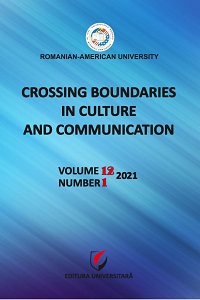Digital Competences in the Acquisition of Romanian as a Foreign Language
Digital Competences in the Acquisition of Romanian as a Foreign Language
Author(s): Ana-Mihaela IstrateSubject(s): Language studies, Language and Literature Studies, Education, Foreign languages learning, Applied Linguistics, Sociolinguistics, Computational linguistics, Adult Education, Higher Education , Educational Psychology, Distance learning / e-learning
Published by: Editura Pro Universitaria
Keywords: Computer Mediated Communication; Romanian as a Foreign Language; intrinsic and extrinsic motivation; linguistic processes; social processes;
Summary/Abstract: The study highlights the most important challenges encountered by the language professors in teaching online, enumerating some of the most important tools available during an entire year of online teaching Romanian as a Foreign Language. It focuses particularly on the difficulties that international students had, while learning a completely new language, without any face-to-face interaction, stressing the most important online instruments, which could help us teach Romanian grammar and vocabulary. The study highlights also the most important theoretical frameworks regarding intrinsic and extrinsic motivation, which can trigger the learning process, even in an exclusively online environment. Very important is the change of mentalities, first at the level of the teachers, who can and should embrace the change, so that they can push the limits of teaching languages in the virtual space, in such a way that classes could be equally interesting and challenging for the learners. A very important section of the article is dedicated to the study of intrinsic and extrinsic motivation, in the case of international students learning Romanian as a foreign language, explaining the mechanisms that trigger language acquisition and offering examples of instruments that we have at hand, to help the language production. The study also enumerates some of the most important models that focus on linguistic and social processes, which trigger foreign language acquisition, which can explain why in certain cases learners can learn a foreign language faster or experience a culture shock, due to the inappropriate cultural adaptation.
Journal: Crossing Boundaries in Culture and Communication
- Issue Year: 12/2021
- Issue No: 1
- Page Range: 132-146
- Page Count: 15
- Language: English

